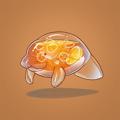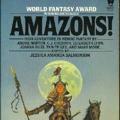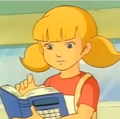enne📚 reviewed I Who Have Never Known Men by Jacqueline Harpman
I Who Have Never Known Men
5 stars
There’s no continuity and the world I have come from is utterly foreign to me. I haven’t heard its music, I haven’t seen its painting, I haven’t read its books, except for the handful I found in the refuge and of which I understood little. I know only the stony plain, wandering, and the gradual loss of hope. I am the sterile offspring of a race about which I know nothing, not even whether it has become extinct.
Highly recommended from me. This book is sort of a melancholy post-apocalyptic coming-of-age survival story, but with a dreamlike tint. It's uncompromising in not giving any pat answers to any of its questions. Why are these women here? Where has everybody else gone? Is this even earth? I feel like it explores a lot of ideas around trauma and knowledge and purpose, but at its heart I feel like it's really getting …
There’s no continuity and the world I have come from is utterly foreign to me. I haven’t heard its music, I haven’t seen its painting, I haven’t read its books, except for the handful I found in the refuge and of which I understood little. I know only the stony plain, wandering, and the gradual loss of hope. I am the sterile offspring of a race about which I know nothing, not even whether it has become extinct.
Highly recommended from me. This book is sort of a melancholy post-apocalyptic coming-of-age survival story, but with a dreamlike tint. It's uncompromising in not giving any pat answers to any of its questions. Why are these women here? Where has everybody else gone? Is this even earth? I feel like it explores a lot of ideas around trauma and knowledge and purpose, but at its heart I feel like it's really getting at what it means to be human when you are disconnected from past social structures but also disconnected from hope for the future.










